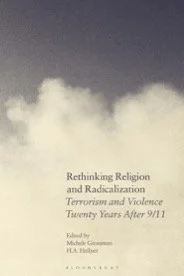By Alice Marwick, Benjamin Clancy, Katherine Furl
This literature review examines cross-disciplinary work on radicalization to situate, historicize, frame, and better understand the present concerns around online radicalization and far-right extremist and fringe movements. We find that research on radicalization is inextricably linked to the post-9/11 context in which it emerged, and as a result is overly focused on studying the other. Applying this research to the spread of far-right ideas online does not account for the ways in which the far-right’s endorsement of white supremacy and racism holds historical, normative precedent in the United States. Further, radicalization research is rife with uncertainties, ranging from definitional ambiguity to an inability to identify any simplistic, causal models capable of fully explaining the conditions under which radicalization occurs. Instead, there are multiple possible pathways to radicalization, and while the internet does not cause individuals to adopt far-right extremist or fringe beliefs, some technological affordances may aid adoption of these beliefs through gradual processes of socialization. We conclude that the term “radicalization” does not serve as a useful analytical frame for studying the spread of far-right and fringe ideas online. Instead, potential analytical frameworks better suited to studying these phenomena include theories prominent in the study of online communities, conversion, mainstreaming, and sociotechnical theories of media effects.
A summary of key take-aways includes:
The adoption of extremist, far-right, and fringe beliefs is often referred to as “radicalization,” a term formulated post-9/11 to understand jihadi terrorism, a very different context from the far-right.
Radicalization research is full of uncertainty.
No specific type of person is vulnerable to radicalization, and most people who commit political violence are not mentally ill or alienated from society.
Radicalization is not caused by poverty, oppression, or marginalization.
There is no one way in which people are “radicalized.”
Viewing extremist media does not necessarily lead to adopting extremist beliefs or committing political violence.
In contrast to the “red pill” model, radicalization is gradual. Recruits slowly adopt the identities, emotions, and interpretations shared by a community. They conceptualize their problems as injustices caused by others, and justify using political violence against them.
The internet does not cause radicalization, but it helps spread extremist ideas, enables people interested in these ideas to form communities, and mainstreams conspiracy theories and distrust in institutions.
"Radicalization” is not a useful frame for understanding the spread of far-right and fringe ideas online.
It is analytically imprecise and morally judgmentalIt doesn’t help us understand the role of media and digital technologies.
It is inextricably tied to a global security infrastructure targeting Islam.
It doesn’t account for the fact that fringe or far-right beliefs may change what people think is “true” and “false,” making it hard to find common ground.
The focus on violence ignores other worrying effects of mainstreaming far-right and fringe ideas.
Publisher: Bulletin of Technology & Public Life, 2022. 83p.



